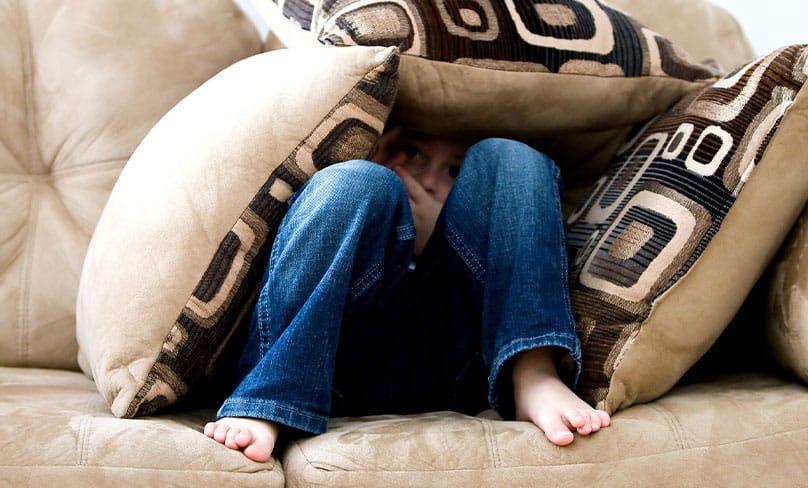
A group of Australian parenting researchers is calling for improved access to quality parenting support programs amid rising levels of mental health problems such as anxiety, depression, self-harm and suicide in children and teens.
Leading child protection expert Daryl Higgins, director of ACU’s Institute of Child Protection Studies, is one of the key researchers behind the Parenting and Family Research Alliance (PAFRA), a collaboration of Australian researchers formed to increase the reach of such support programs both here and overseas.
He thinks the kids’ animated series Bluey and recent reality TV show Parental Guidance, along with positive parenting messages on radio or social media are great for raising conversations and awareness about what makes for effective parenting.
only 35 per cent of parents with a child needing help for an emotional or behavioural problem reported having their needs fully met.
But he’s convinced that nearly every family at some point could benefit from one of the spectrum of evidence-based parenting support programs available, such as those run by government or church-run welfare agencies, especially when faced with mild to severe mental ill health or concerning or challenging behaviours in their child.
However, there’s a problem getting the programs to the people they can benefit. Recent studies show that only 35 per cent of parents with a child needing help for an emotional or behavioural problem reported having their needs fully met.
In a recent paper published in the journal Child Psychiatry and Human Development, PAFRA researchers outlined ways to increase the reach and impact of evidence-based parenting support programs which are effective at addressing several mental health, physical health, and social problems.

“The majority of mental health problems have their origins in childhood and adolescence, and it is well documented that investing in the mental health of future generations has long-term benefits for all aspects of society,” Professor Higgins said.
“Few policies adequately support the use of evidence-based parenting supports to improve the lives of parents and children, and to reduce child and youth mental health disorders. This needs to change.”
Evidence-based parenting support programs can give parents and carers knowledge and skills. Parents report becoming more confident in raising their children and more effective at teaching them skills to be successful in life. Children also experience greater wellbeing, learn to better handle stressful events, experience fewer mental health problems, and perform better at school.
“Unfortunately the way these programs are often accessed is through referral from a child protection agency which is problematic because it means very few parents are getting it and the ones who are getting it are often coming through a very stigmatising access point,” Professor Higgins said.
“Yet when we do offer programs more broadly we know that parents benefit from them.”
The way the NDIS is structured also makes it impossible for parents or carers of a child with a disability to access group support programs for parents, which are among the most effective, he explained.

Lead report author Dr Frances Doyle of Western Sydney University said it was vital for research efforts and policies to support parents and caregivers by ensuring evidence-based parenting programs were widely accessible and readily available.
“Parents need to be able to get support and be able to access these programs in ways that are non-stigmatising,” Dr Doyle said.
“Embedding evidence-based support in places where families already engage, such as schools or the healthcare system, is a good way to encourage them to seek support for themselves and their children.”
Professor Higgins said he would encourage school and childcare communities to reach out to local family and relationship service providers and “invite them in”.
“Rolling out these kinds of supports to where the vast majority of families already are normalises the idea of seeking help. They are not just for the ‘problem families’, they are for all those who want to do even better at the task of parenting with help from support at different points of our parenting journey.”
Family crisis support
CCareline Team 8am to 6pm weekdays: 13 18 19.
Parent Line NSW 9am to 9pm weekdays and 4pm to 9pm weekends: 1300 1300 52
Lifeline: 13 11 14
Beyond Blue: 1300 22 46 36
Related stories:
Mental health training for teachers welcomed
Lockdowns sparked a mental health crisis
CatholicCare offers someone to talk to
